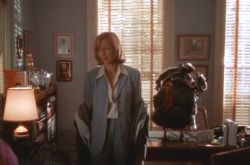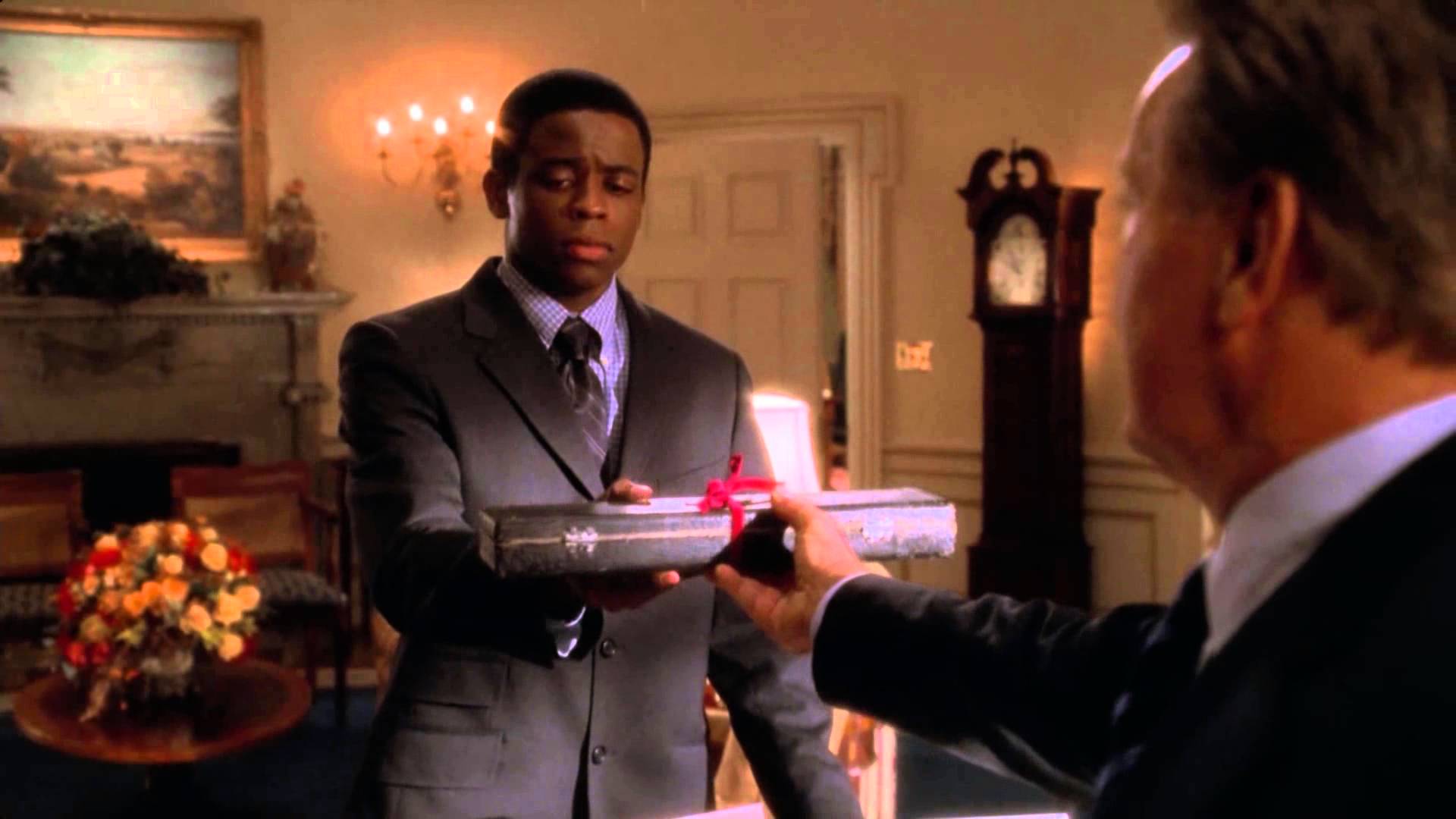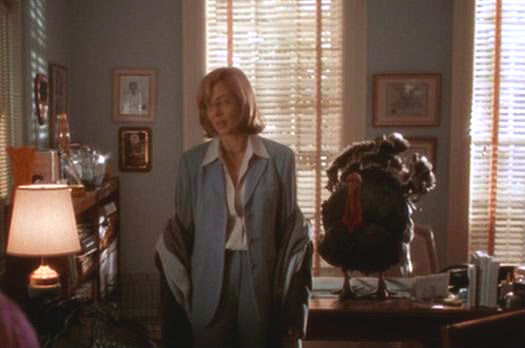I saw it for the first time just last month, so I can't exactly call it a “tradition,” but if I had a Thanksgiving-watching tradition other than football, it would be to watch The West Wing, Season 2, Episode 8: “Shibboleth.” Unscientific research reveals that this is pretty much everyone's favorite West Wing episode.

A lot is going on, of course: C.J. has to pick the most photogenic turkey for the President to pardon and doesn't know the words to “We Gather Together”; Charlie needs to get the President a new carving knife, and Bartlet's being eccentrically specific about what he wants; Toby wants the President to make a somewhat radical recess appointment who also turns out to be Leo's sister, and Leo is furious.
But the anchor for the episode is the arrival of a group of Chinese refugees in California, where they seek asylum from religious persecution in their homeland. The Chinese government claims they left unlawfully and should be returned. A group of religious leaders arrive at the White House to advocate on behalf of the refugees, while other people uncomfortably remind the White House that some who flee China are coached to say they are seeking religious asylum.
“Shibboleth,” which aired in 2000, is mostly about religious freedom in the face of the culture wars. There are the refugees, of course, but there are two other bits. The religious leaders who come to the White House include the abrasive Mary Marsh, who was associated with some efforts (kept vague in the episode) to “blow up” a theatre at which a play called Apostles was being produced, which suggested that Jesus was gay. In classic Sorkin fashion, this seems to be a reference to similar events around the play Corpus Christi, which was first staged two years earlier in New York. The playwright, Terence McNally, received death threats.
“So you’re committed to religious freedom for all people unless you don’t like what they have to say?” Sam asks Mary. “Don't look now, but I think the playwright's headed to China.”
Balancing out this plotline is Leo's anger with his sister, Josephine, Toby's pick for the recess appointment as Assistant Secretary of Primary and Secondary Education, faithful church attendee and Sunday School teacher. The problem is that Josephine McGarry is against school prayer—or at least, that might have been the problem but might also have been pushed to the sidelines, given her expertise and record, except that a photograph surfaced of her having two high school students handcuffed at a football game for praying.
And yet it's not even the action that is the problem: it's that it was done for the cameras, as Leo has found out; a photographer was notified to be there. That's the dealbreaker. “Those kids are commendable in this day and age, those kids are phenomenal,” he says. Sure, there are laws to be enforced, and that's part of an official upholding her duty to the law. But “we do not strut, ever,” he says. She resigns.
The actual balance of the Chinese refugee plot is so wonderful that I don't want to spoil exactly how it plays out if you want to go back and watch the episode, but I have to say that it contains this speech:
Mr. President, Christianity is not demonstrated through a recitation of facts. You're seeking evidence of faith, a wholehearted acceptance of God's promise for a better world. “For we hold that man is justified by faith alone” is what St. Paul said. “Justified by faith alone.” Faith is the true . . . uh, I'm trying to . . . shibboleth. Faith is the true shibboleth.
Taken with the rest of the episode (including Bartlet’s truly priceless gift to Charlie), this seems to be a pretty clear proclamation: that our faith is grown and shows up in what we do, how we treat one another, how we handle the gifts that are given to us. That a word or knowledge is not evidence of a true believer—it's not the shibboleth. That is left up to our lives, and how we interact with the power and resources and platforms and people we're given. That we can only live our lives well because of the gift of faith and grace, anyhow.
Which, I think, is something worth remembering at Thanksgiving.
The episode is on Netflix, in case you want to go watch it now, too.
(Other good things to watch on Thanksgiving, most of which I haven't seen, crowdsourced by the helpful folks on Twitter: A Charlie Brown Thanksgiving; “Deep Fried Korean Thanksgiving” from Gilmore Girls, and any of their other Thanksgiving episodes; any of the Thanksgiving episodes from FRIENDS, my favorites being “The One Where Ross Gets High” and “The One With the Rumor”; Pieces of April; “Pangs” from Buffy the Vampire Slayer; “Turkeys Away” from WKRP in Cincinnati; and, of course, Planes, Trains, and Automobiles. I submit that Babette's Feast would be a rather good choice, too.)










